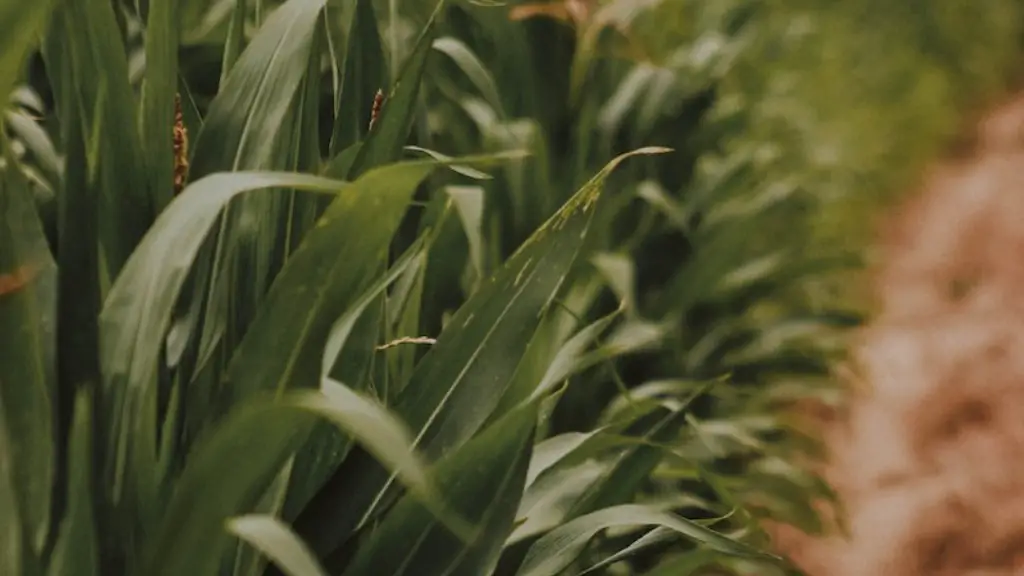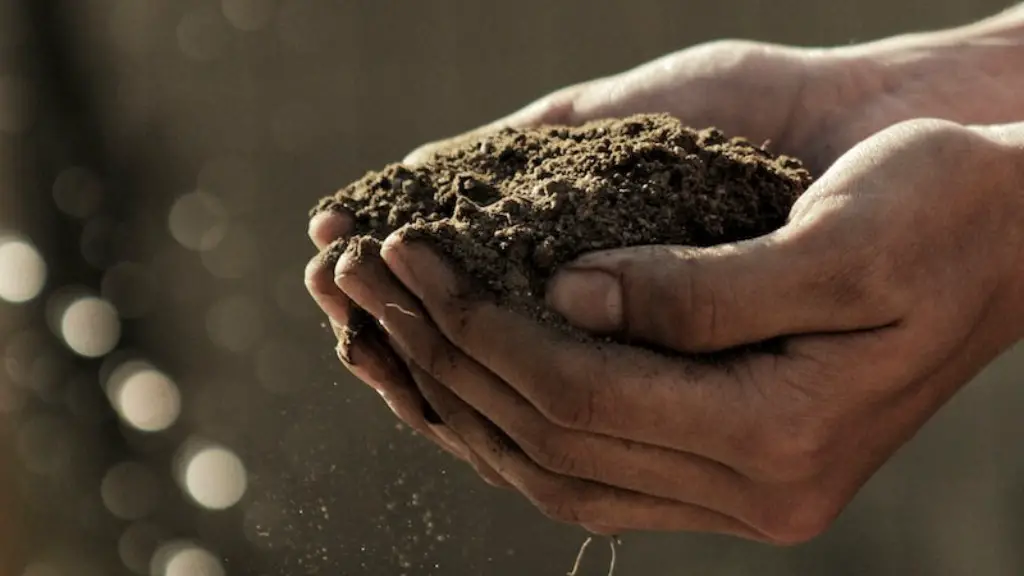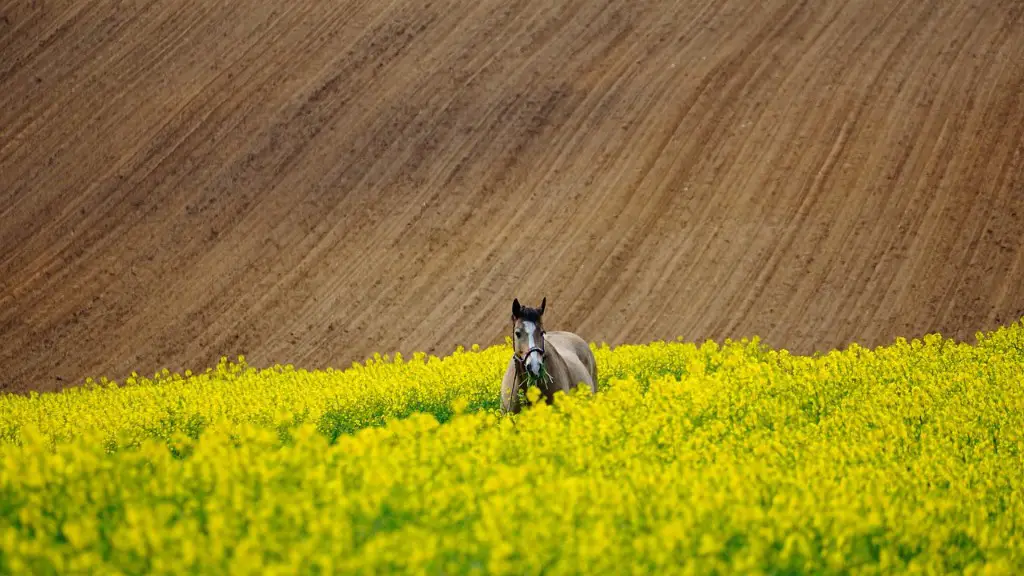Mississippi agriculture is a vast and profitable industry which is an integral part of the state’s economy. It is responsible for providing a vast amount of grain, dairy, and beekeeping products, as well as providing employment for approximately one fifth of the state’s population. The four main products produced in Mississippi are cotton, poultry, dairy, and peanuts, with cotton being the majority of agriculture commodities produced. Mississippi is among the top five cotton producing states in the country, harvesting almost 4 million bales of cotton each year. The poultry industry is also very important to the state’s economy, providing thousands of jobs and producing eggs and other poultry products. Dairy products are also a noteworthy agricultural product, with Mississippi producing over 104 million pounds of milk per year, as well as providing around 1,000 jobs. Finally, peanuts are an important part of the state’s agricultural economy, with around 36,300 acres of peanut land, producing over 16,000 tons of peanuts each year.
Cotton Production
Cotton is the major agricultural crop in Mississippi and one of the state’s biggest sources of revenue. Mississippi is one of the largest producers of cotton in the United States, with a total of 4 million bales harvested every year. Cotton is grown mainly in the Delta and North Central regions of the state, where the soil is especially suited for this crop. The industry has grown significantly in the last decade, and advances in farming techniques, modern machinery and seed technology have allowed for increased yields and more efficient farming.
In Mississippi, cotton is used to produce yarn, clothing, upholstery, and other home products. Cotton is also used for industrial purposes, such as for the production of car tires, furniture, packaging, and photo paper. Cotton plays an essential role in the state’s economy, ensuring not just revenues, but also thousands of jobs and improved living conditions.
Poultry Industry
Poultry production is another important agricultural sector in Mississippi. The state is ranked fourth in the nation in terms of total poultry production, providing jobs, incomes, and a livelihood to thousands of people. From broiler chickens to turkeys and ducks, Mississippi produces a huge variety of poultry products, including eggs, broilers, and parts. Over the years, the poultry sector has become more efficient, modernized with smarter farming practices, and has been able to produce more for less.
Poultry production is an important part of Mississippi’s economy, with 1,200 poultry farms located around the state. The industry is an important source of employment, providing jobs to thousands of people, and generating revenues of over $2.8 billion each year. Poultry production is also beneficial to the environment, providing natural fertilizers and sources of food for wild animals and helping to ensure a certain degree of biodiversity.
Dairy Industry
The dairy industry is another integral part of the state’s economy, with around 980 dairy farms located in Mississippi. Milk production is the most important part of the industry, with the state producing over 104 million pounds of milk each year. The state is also home to the only dairy cow genetic database in the country, providing scientists with useful information to help them improve dairy cow genetics and milk production.
The dairy industry is a vital source of employment and income for Mississippi, with many farmers relying on it for their livelihood. In addition, the dairy industry also provides jobs for transport workers, feed millers, and nutritionists. It helps ensure that Mississippi is well-stocked with a variety of healthy dairy products, and provides local communities with an important source of nutritious food.
Peanut Industry
The peanut industry is another important agricultural sector in Mississippi, with 36,300 acres of land dedicated to the cultivation of this crop. Peanuts are important sources of income for many farmers, and provide jobs, revenue, and an important source of nutrition. Every year, the state produces around 16,000 tons of peanuts, which are used to produce various products including peanut butter, snack foods, and pet food.
The peanut industry is an important source of employment and revenue for many local communities in Mississippi, with approximately 4,000 farmers involved in the production of peanuts. The industry also provides a significant boost to the state’s agricultural economy, as well as providing a vital source of nutrition for millions of people.
Fertilizers and Pest Control
Fertilizers and pest control are vital aspects of Mississippi’s agricultural sector, as they help to ensure that the crops are able to thrive. Fertilizers are used to help replenish the soil and provide the necessary nutrients for crop growth, while pest control is used to protect crops from diseases and pests, ensuring that healthy produce can be harvested. Mississippi farmers use a variety of methods to ensure that their crops are getting the right nutrients and are being protected from any pests or diseases.
Fertilizers and pest control are vital aspects of Mississippi agriculture, as they help to ensure healthy and bountiful harvests. Good quality soil and pest control measures are essential for producing high yields, and are essential for ensuring a successful agricultural sector.
Marketing and Distribution
Marketing and distribution are important components of Mississippi’s agricultural sector, as it helps to ensure that the crops produced can be successfully sold in the market. Mississippi farmers must be able to target the right markets, and be able to promote their products in order to make a profit. There are a number of support organizations and programs available to help farmers with marketing and distribution, including the Mississippi Department of Agriculture and Commerce marketing and promotion efforts.
Marketing and distribution are essential for the success of Mississippi’s agricultural sector, and are essential for ensuring that the crops produced can be successfully sold in the market. Through marketing, farmers are able to reach out to the right customers, ensuring that they are able to obtain the best possible prices for their products.
Technological Advances
In order to ensure that Mississippi’s agricultural sector remains strong, it is essential that the industry adopts new technologies and farming techniques. Advances in technology have enabled Mississippi farmers to improve their yields and become more efficient, while modern farming techniques have allowed them to reduce the environmental impact of their operations.
Technology has been beneficial for Mississippi’s agricultural sector in many ways, from increasing yields and reducing costs, to improving the quality of the products produced and helping to ensure the sustainability of the industry. Technological advances have been essential for helping to ensure that Mississippi’s agricultural sector remains strong and competitive.
Economic Impact
Mississippi’s agricultural sector is a major contributor to the state’s economy, providing jobs, incomes, and a livelihood to many people. The sector provides a vital source of income for the state, generating revenues of over $5 billion each year, and providing thousands of jobs in the process. In addition, the sector is also an important source of nutrition and health, providing the population with an important source of food and helping to ensure that people have access to healthy and nutritious products.
Mississippi’s agricultural sector is an important part of the state’s economy and provides jobs, incomes, and a livelihood to many people. It is essential for the state’s economy, providing both revenues and jobs, and is an important source of nutrition for many people around the state.




